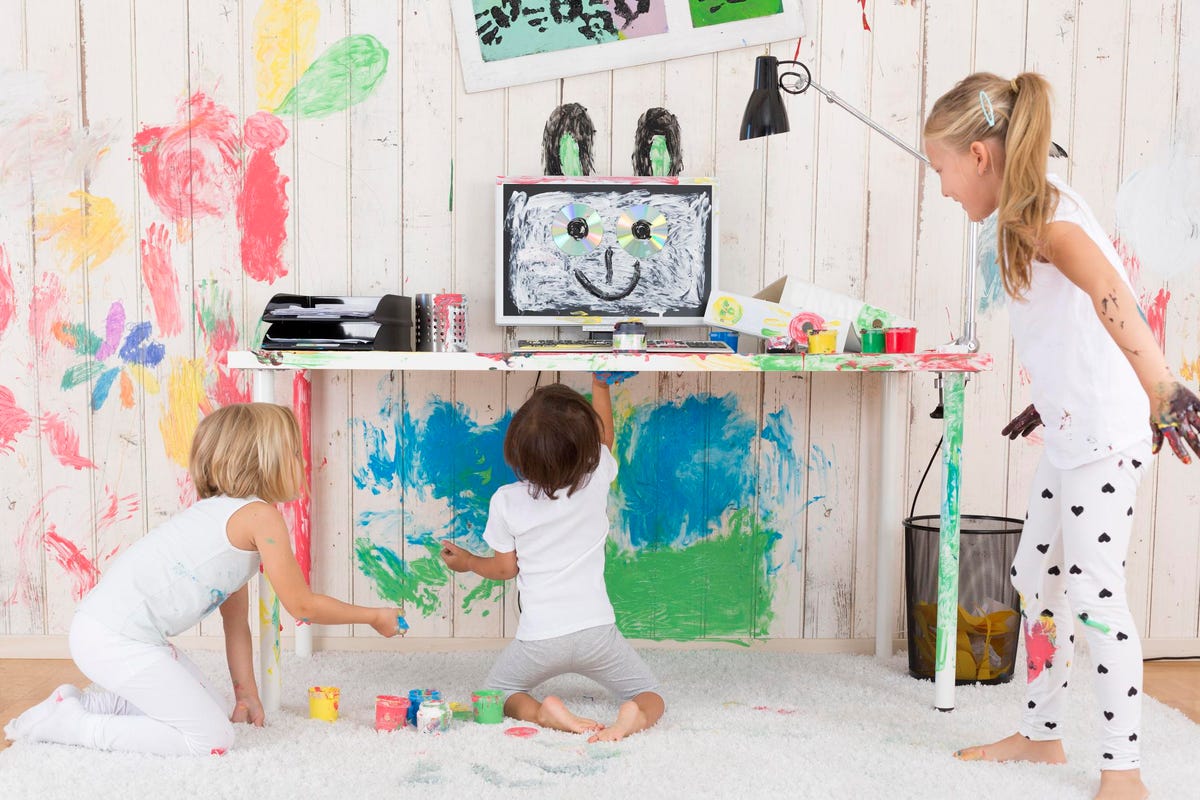
There’s no shame in the need for a vacation from your kids.
At the start of vacation time, things may seem idyllic—happy time with family doing engaging crafts and fun fitness activities together with constant laughter and joy. Unfortunately, while much of this may be reality, in truth, family time can also be draining. This is hard to admit however, in a society where family is idealized.
Anyone who has been a parent or who has cared for children knows that while there is a lot of joy, it can also be challenging. Children are engaging, but also demanding. They are energetic, but also exhausting. And they are at the center of the tasks which can seem never-ending.
If they’re honest, some parents will admit they look forward to some time away from family and see work as respite. Far from a dirty secret, this need for some distance from family is perfectly acceptable. No single role can meet all your needs, and when you take care of yourself, you’ll be better for your family. Work can be a welcome welcome change of focus and a source of reinvigoration after plenty of quality time with the family.
Why Work Is Respite
Here’s why time away from family is okay, and why work can provide for recovery, rejuvenation and recuperation.
#1 – Work Provides A Tangible Sense Of Accomplishment
Sometimes, work associated with family can seem like it never ends. You finish a load of laundry only to turn and see the next dirty shirt on the floor near the hamper. Or you spend an hour preparing a lovely meal which is consumed in what seems like minutes. Work, on the other hand, can provide a greater sense of accomplishment. You find a new solution to a problem, you successfully manage a complex project or participate in the launch of a new product. In addition, much of work is tracked, recorded and reported. You see how many calls you completed at the call center or have a report of your sales for the day. All of these provide for potentially more tangible senses of tasks completed and jobs well done.
MORE FOR YOU
#2 – Work Provides For More Feedback
Most parents say they receive little feedback and may feel minimal appreciation for their efforts on the home front. In fact, if you received feedback from your toddler on the quality of your vacuuming, you might wonder if you’d landed in the Twilight Zone. This lack of feedback is normal, but it can also feel like a void—as if your efforts aren’t adequately acknowledged. On the other hand, feedback tends to be more frequent at work. Teams review their progress, seek feedback from customers and participate in regular performance reviews. Projects often include post-mortem reviews and meetings may close with quick round-robins of their effectiveness. All of these provide validation of your efforts because they provide for focus on processes, outcomes and achievements.
#3 – Work Offers Shared Experience
Many parents also say they feel lonely if they are with children for the majorities of their days. Even if they have partners, parents may not feel they have time to interact as grownups. By the time dinner and bath time and story time are finished, many parents are falling into bed resting up to repeat the routine tomorrow. On the other hand, work is a shared experience with teams carrying the load of deadlines together and owning tasks across groups. In addition, the value of having an adult conversation or drawing support from a colleague are small things with big impact on mental health and emotional resilience. People need others with whom they can identify, commiserate and be their adult selves.
Work can offer a sense of accomplishment you don’t get at home.
#4 – Work Provides Variety
Another aspect of parenting which can be tough is the monotony—the same morning routine followed by similar afternoon patterns and evening rituals. Children provide plenty of animation and energy, but the routines can be rather redundant. Work offers variety—the opportunity to get out of the house and engage in tasks which are different than those you’re completing at home. Brain science reinforces the need for variety and stimulation—and work offers these in terms of different venues (even if they’re virtual), shifting responsibilities and varieties of people with whom to interact.
#5 – Work Develops Your Skills
The world of parenting can be a source of skill development in terms of solving problems creatively (how to get junior to eat his vegetables), multitasking, endurance and relationship strength. But work can also be a rich source of growth. You will likely face challenges at work which tax your brain, require you to solve tough problems or work through ambiguous issues. In addition, work often requires ongoing learning—the new software system, the new project management protocol or the new interpersonal skill training which are required. Work typically offers more complexity—which can be helpful in terms of your motivation, engagement and fulfillment. Work is part of a full life and the challenges it poses are part of an interesting day.
#6 – Work Expands Your Horizons
Parents also say they feel like their worlds can become rather small. Playing marble tower again or enjoying the 100th cup of delicious pretend tea with your toddler are warm and wonderful, but they are also rather narrow. Work offers the opportunity to interact with multiple co-workers, learn about new markets or encounter uncertain new situations. Depending on your job, you may work with people from different countries who speak different languages or who live in different cultures. All of these expand your horizons and provide for new learning and greater perspectives.
#7 – Work Provides Boundaries
Parenting can seem all-consuming with not a moment to breathe. Work can be a much-needed break, and provide a boundary. Getting away onto a call or being in the car heading for a day in the office can put a limiter on family time. In addition, work can provide more in-between spaces. You walk between meetings or grab a coffee between calls. This space to be alone or away—even for brief moments of time—can provide breaks in the action which you may not feel at home.
In Sum
Parenting is one of the most significant, most rewarding challenges you can face. And there is perhaps no greater sense of purpose than in raising a child. But no single role is everything, and part of a fulfilling work-life experience is the variety, stimulation, accomplishment or perspectives that work offers. Succeeding at parenting doesn’t arise from being always on with family. Instead, it comes from immersing yourself in the variety of experiences which make you better, so you can be your best for those you care about most.







